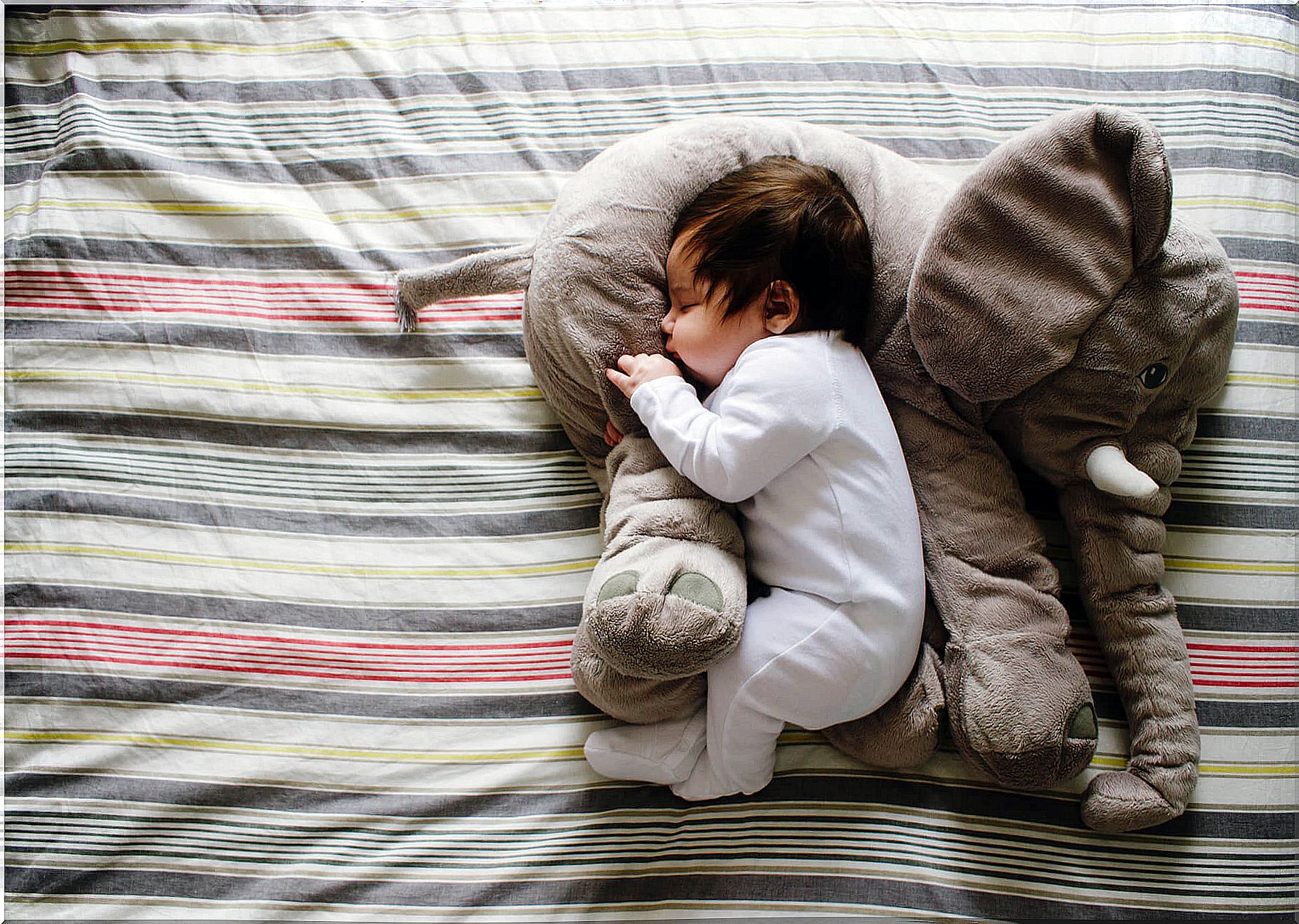Children Have To Learn To Sleep

As parents, we are the first to teach our children how to sleep properly . Resting outside of the womb isn’t the same thing.
It is our job to achieve stable sleep patterns for our children. We have to take it step by step. Young children need a stable sleep routine to get the rest they need.
The quality of sleep has a direct impact on the health of our children. That is why it is so important for us to ensure a healthy sleep.
Because it’s true: the more children sleep , the more they grow!
Children’s sleeping habits
After a child reaches the age of two, their sleeping habits will change drastically. We then need to create an appropriate environment and conditions so that it can learn to sleep properly.
At this age, children tend to sleep around 13 hours a day. By the age of three to five, children start sleeping about 10 hours a day.
Why are children’s sleeping habits changing? The answer is very simple:
Sleep habits never stay the same for people! Our biological clock is constantly adjusted to the physical changes in our bodies and tries to maintain the necessary amount of rest.

At this stage, it’s normal for children to wake up at night for one reason or another.
However, this will happen less and less as they grow and children only wake up for shorter periods of time – usually for around 20 minutes.
Learning to sleep will take time and effort. Ultimately, however, everyone benefits from it.
The sleep pattern should be kept routinely and regularly until the child is ten years old.
Learning to sleep: A learning process with several levels
When a child learns to speak, they can communicate with us and tell us how they are and what they need when they wake up one night.
During these phases, it is important that parents follow their children’s sleep routines. It takes time and effort for the child to become fully accustomed to a routine.
Be responsive to the child’s needs and help them have everything they need to get a good night’s sleep. It is very likely that children up to the age of 5 will need their parents’ help to fall asleep.
It is very important that parents make rules. Know how to cater to children’s needs without pampering them.
Parents need to learn to distinguish when their child has a real need and when they are trying to manipulate them.
It is perfectly normal for children to try to negotiate and ask about different things when they wake up at night.
When this happens, experts recommend that parents should let their children understand that they can sleep alone and that no harm will happen to them.
Make it clear to them that they need to sleep in order to have energy for the next day and to be able to play again the next morning.
Try to avoid a tense environment as much as possible. You shouldn’t punish a child late at night for just waking up. This will only complicate your endeavors.
Up to the age of five, children should take a one-hour nap in the afternoon. These naps should not be extended unnecessarily. Otherwise, they could prevent the child from sleeping at night.
You need to teach your children how to sleep properly
- Stick to a routine to help your children achieve stable sleep patterns. It is important that children go to bed and wake up at the same time each day. Parents should also prevent their children from going to bed hungry or from drinking plenty of fluids beforehand. This will help you avoid waking up from being hungry or having to urinate.
- The children’s sleep routine can also include activities to help them relax. This can be, for example: taking a bath, reading a story or singing a bedtime song. Explain to your child that you will always be around when they need you – even when they are sleeping. This will help them overcome separation fears.

- It is important that children do not go to bed with a penalty. You shouldn’t threaten them with what will happen if they don’t sleep right away. This kind of upbringing will not help them, on the contrary: you are hurting your child and frightening them.
Playing before bed?
Many parents put their child to bed when they are exhausted. They may even try to make their children tired if they still have a lot of energy.
Keep in mind, however, that if you ask them to play beforehand, you can inadvertently make it even more difficult for your children to go to sleep.
It has been proven that electronic devices have a stimulating effect on children and prevent them from falling asleep.
By electronic devices, we mean televisions, tablets, cell phones, consoles and other devices that emit artificial light.
Learning to sleep can be easy – when we know how to be patient and establish a constant and coherent routine.
And of course a lot of love should not be missing when it comes to teaching our children something.









